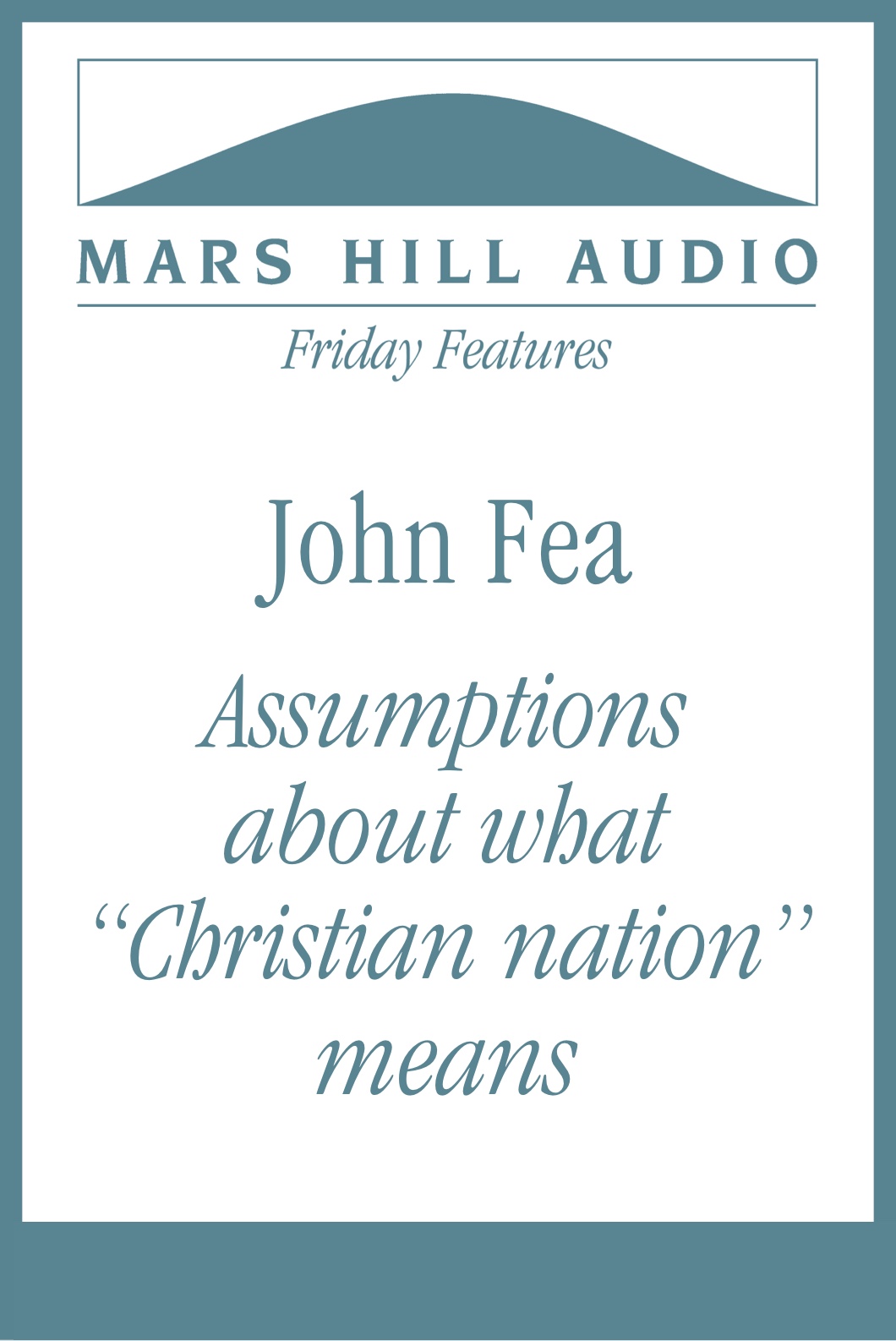released 7/5/2024
In a conversation from 2012, historian John Fea discusses the idea of America as a Christian nation. He traces the idea’s acceptance in most of the past four centuries through America’s founding, manifest destiny, the Civil War, nineteenth- and twentieth-century liberal Protestantism, the civil rights movement, fundamentalism, and the Religious Right. His 2011 book Was America Founded As a Christian Nation?: A Historical Introduction deals with the complicated historical puzzle this question addresses. Many Christians make a constant reference to the need to “reclaim our Judeo-Christian heritage.” The idea has always been pervasive and influential, though what is meant by the term in the particulars has changed over time depending on which groups were using the rhetoric. Each side of the Civil War, for example, invoked God and the Christian nature of the nation to buttress their arguments. America’s founders, whatever else, saw religion in the Greco-Roman tradition: as necessary for the moral and civic formation of citizens. Liberal Protestants in the immense Social Gospel movement saw their politics as establishing the principles of the kingdom of God. Americans throughout history understood their nation as a sacred and providential trust from a God who was working through America for the sake of progress in the world. Host Ken Myers discusses with Fea the implications of what it would mean to be a truly Christian nation, and whether assumptions about our heritage are in line with historical realities. This conversation was originally published on Volume 111 of the Journal.
27 minutes
PREVIEW
The player for the full version of this Feature is only available to current members. If you have an active membership, log in here. If you’d like to become a member — with access to all our audio programs — sign up here.
Related reading and listening
- Self-transformation, American style — Jackson Lears on late-19th-century visions of rebirth
- Modernity and the shaping of America — FROM VOL. 48 Historian Jon Butler explains how aspects of modernity were already present and at work in colonial American life prior to 1776. (12 minutes)
- Eugenics and the rise of “evolutionary ethics” — FROM VOL. 70 Richard Weikart describes evolutionary ethics and examines the ties between national racism and the eugenics movements of the late nineteenth and early twentieth centuries. (16 minutes)
- On Eugenics in America — Christine Rosen explores early eugenics support in the early 1900s and current “participatory evolution” practices. (50 minutes)
- What hath “manifest destiny” wrought? — Daniel Walker Howe on the eschatological imagination that encouraged American expansion
- Post-Christian America and the “unlimited technological future” — George Parkin Grant on technology and the Puritan legacy of “unflinching wills”
- Recognizing the Puritan flavor of “America” — George McKenna on the originally theocentric vision for the American vocation
- Progress and God’s providence in American history — Historians Daniel Walker Howe and George McKenna explain religious understandings of God’s purpose for America in the 19th century and colonial era, respectively. (34 minutes)
- Countering American apathy toward history — FROM VOL. 124 Historian John Fea discusses how American and Protestant individualism continues to influence our orientation toward the past. (22 minutes)
- “Detachment as a whole way of life” — FROM VOL. 85 Professor Christopher Shannon discusses how early twentieth-century social scientists encouraged the American idea that individual identity works against communal membership. (17 minutes)
- Alchemy, astrology, energy, and gnosticism — FROM VOL. 85 Catherine Albanese describes the varieties of “metaphysical religion” popular in early American history and draws connections with the more recent New Age movement. (14 minutes)
- Paradoxical attitudes toward plastic — Jeffrey Meikle traces the technological, economic, and cultural development of plastic and relates it to the American value of authenticity. (15 minutes)
- The roots of American disorder — In this reading of an article from 2021 by Michael Hanby, the critique of Marxism in Augusto del Noce’s work is compared with texts from the American Founders. (79 minutes)
- “Muscular Christianity” and sport as language — In light of this summer’s Olympic Games, we present two sports-related archive interviews: Clifford Putney on Protestant emphasis on fitness at the turn of the 19th century; and Andrei S. Markovits on Americans and soccer. (23 minutes)
- From democracy to bureaucracy — Historian John Lukacs on the challenges of living at the End of an Age
- Ideas and historical consequences — Historian John Lukacs (1924–2019) discusses the relationship between institutions and character, popular sentiment versus public opinion, the distinction between patriotism and nationalism, and the very nature of studying history. (36 minutes)
- Mars Hill Audio Journal, Volume 156 — FEATURED GUESTS:
Kimbell Kornu, Paul Tyson, Mark Noll, David Ney, William C. Hackett, and Marian Schwartz
- Mars Hill Audio Journal, Volume 145 — FEATURED GUESTS:
David I. Smith, Bruce Hindmarsh, Jason Baxter, John Fea, Laurie Gagne, and Matthew O’Donovan
- A deeply disordered love — John Lukacs on the differences between patriotism and nationalism
- Mars Hill Audio Journal, Volume 124 — FEATURED GUESTS:
John Fea, Robert F. Rea, John C. Pinheiro, R. J. Snell, Duncan G. Stroik, Kate Tamarkin, and Fiona Hughes
- Mars Hill Audio Journal, Volume 111 — FEATURED GUESTS: Siva Vaidhyanathan, John Fea, Ross Douthat, Ian Ker, Larry Woiwode, and Dana Gioia
- Mars Hill Audio Journal, Volume 48 — FEATURED GUESTS: Jon Butler, Gary Cross, Zygmunt Bauman, Pico Iyer, Richard Stivers, Larry Woiwode, Alan Jacobs, and James Trott
